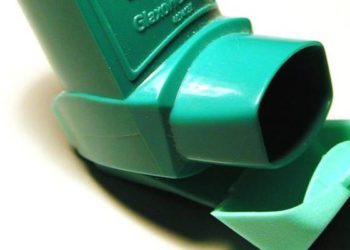Stricter state firearm laws associated with lower rates of firearm suicide and homicide
1. Strong state firearm laws were associated with lower firearm suicide and homicide rates and overall suicide rates regardless of surrounding state laws.
2. States with weak firearm laws only had lower rates of firearm homicide if they were surrounded by states with strong laws.
Evidence Rating Level: 3 (Average)
Study Rundown: Firearm injuries causing death by suicide and homicide is an important public health issue. State laws regulate how firearms are bought, sold, tracked and who can buy them. While it is known that stronger firearm policies are associated with lower rates of firearm deaths it is unclear how neighbouring states with varying policies impact in-state suicide and homicide rates. This cross-sectional study aimed to determine whether counties located closer to states with lenient firearm policies have higher firearm death rates.
Stronger state firearm laws were associated with lower firearm suicide and homicide rates and lower overall suicide rate. This was irrespective of the strength of neighboring states’ laws. States with weaker firearm policies had higher rates of firearm suicide and homicide. This was robust through low and medium interstate policy scores. States with weaker firearm policies only had lower rates of firearm homicide if they were surrounded by states with strong policies. Strengths of this study included study of a timely and important topic however further observational study would be needed to determine association, as this was a cross-sectional study.
Click to read the study, published in JAMA Internal Medicine
Relevant Reading: Background Checks for all Gun Buyers and Gun Violence Restraining Orders: State Efforts to Keep Guns from High-Risk Persons
In-Depth [cross-sectional]: This cross-sectional study took place during January 2010 to December 2014 and included data from the US Center for Disease Control and Prevention for firearm suicide and homicides in 3108 counties across 48 states in the USA. Counties were assigned two scores: state policy strength score (range 0-12) and an interstate policy strength score (range -1.33 to 8.31) based on population-weighted distance-decayed policy scores. The main outcome of interest was county-level firearm, non-firearm and total homicide and suicide rates. Bayesian spatial Poisson models were used to generate incidence rate ratios to compare incidence rates between each group of counties and the reference group: counties with high home state and high interstate policy scores.
States with strong firearms laws were associated with lower firearm suicide and homicide rates regardless of the strength of the neighbouring states policies. Counties with low in-state scores had higher rates of firearm suicide and homicide. These rates remained high when neighbouring states also had weaker or medium level firearm policies however when neighbouring states had stronger firearm policies these counties had lower rates of suicide and homicide.
Image: PD
©2018 2 Minute Medicine, Inc. All rights reserved. No works may be reproduced without expressed written consent from 2 Minute Medicine, Inc. Inquire about licensing here. No article should be construed as medical advice and is not intended as such by the authors or by 2 Minute Medicine, Inc.







